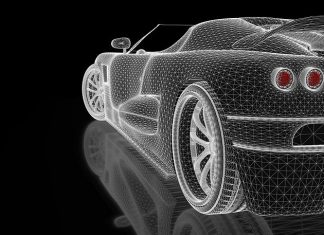Efficiency is key in modern agriculture. Fertilisation plays a crucial role in crop success, but the method used can significantly impact costs. Traditional fertilisation techniques often result in inefficiencies, leading to increased expenses. In contrast, drone fertilisation is transforming the industry with its precision and cost-effectiveness.
Precision Minimizes Waste
Traditional fertilisation methods lack accuracy, often leading to fertiliser being applied in unnecessary areas such as pathways, runoff zones, or unused sections of the field. This results in wastage and inflated costs.
Drones solve this issue through advanced GPS technology, ensuring fertiliser is applied precisely where it is needed. This targeted approach eliminates waste, optimises resource use, and reduces unnecessary spending.

Reduced Labour Costs
Manual fertilisation requires significant time and manpower, particularly for large-scale farming operations.
Hiring workers can become a major expense.
Drone fertilisation reduces this burden. A single operator can manage a fleet of drones, dramatically cutting labour costs. Additionally, drones complete fertilisation tasks in a fraction of the time required by traditional methods.
Time-Saving Efficiency
Traditional fertilisation methods are time-consuming. Workers tire, machinery needs frequent refills, and weather conditions can disrupt the process.
Drones, on the other hand, cover large areas quickly and efficiently. Faster application means improved planning and higher productivity throughout the growing season.
Lower Equipment Costs
Traditional fertilisation relies on tractors, spreaders, and other heavy machinery, all of which require fuel, maintenance, and regular repairs—adding to operational expenses.
Drones are battery-powered and require minimal upkeep, reducing long-term costs. Their low-maintenance nature makes them an economically viable alternative to conventional equipment.
Environmentally Friendly Precision
Over-fertilisation can lead to nutrient runoff, polluting water sources and harming ecosystems. In some cases, this may even result in regulatory penalties.
Drones enhance sustainability by ensuring precise fertiliser application, reducing the risk of runoff, and promoting responsible farming practices. This not only benefits the environment but also helps farmers avoid fines and maintain a positive reputation.
Adaptable to Any Farm Size
Traditional fertilisation methods can struggle with varying field sizes and terrains. Drones offer flexibility, easily adapting to different layouts and farm conditions.
Whether you manage a small farm or vast acreage, drone fertilisation provides a scalable solution tailored to your specific needs.
Data-Driven Farming Insights
Drones do more than just apply fertiliser—they collect valuable data. Equipped with advanced sensors, they monitor crop health, soil conditions, and fertiliser requirements. This data helps farmers make informed, cost-effective decisions, an advantage traditional methods cannot provide.
Partner with Agri Drone Specialists
For precision fertiliser application in Nelson, trust Agri Drone Specialists. Our expertise and cutting-edge technology ensure efficiency, savings, and sustainability in modern farming.
Our drone crop spraying services optimise fertilisation, reduce waste, and lower costs while protecting the environment. Boost your yields and streamline your operations with our innovative solutions.
Contact Agri Drone Specialists today to transform your fertilisation process and enhance your farm's productivity.





